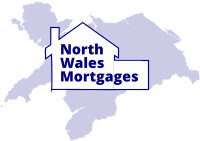The cost of buying a house
Buying a house is expensive! However modest your new home there are extra one-off charges and fees you’ll come up against. When working out your budget, you need to be sure you have money to pay them.

By Nick Partington
Wondering how much it costs to buy a house or a flat? There are a number of fees to consider when buying a new house, including the cost of moving home, your deposit and solicitor fees. This guide will help you plan for all of these when you work out your budget.
Deposit
This is the amount you put towards the cost of the property when you buy your home. Generally, you will need at least 5% of the purchase price.
If you can afford a bigger deposit, you’ll probably get a better mortgage deal as the interest rates get better as the loan to value ratio reduces.
If you only have a 5% deposit you may be able to extra help from the government’s Help to Buy scheme whether you’re a first time buyer or wanting to move up the property ladder.
Mortgage arrangement fee
Mortgage lenders often have additional fees to pay, depending on the mortgage interest rate. There may be:
• A booking fee of £99-£250
• An arrangement fee of up to £2,000, and
• A mortgage valuation fee (£150 or more).
If you are using a mortgage broker, they may also charge a fee of up to £2,000.
We do not charge a mortgage broker fee.
Normally it is best to pay these fees upfront rather than adding them to your mortgage, otherwise you’ll be paying interest on them for the life of the mortgage.
Valuation fee
The mortgage lender will assess the value of the property to establish how much they are prepared to lend you.
A typical valuation fee will be between £150-£1,500 based on the property’s value.
Some lenders might not charge you for this, depending on the type of mortgage product you select.
The lender’s valuation is not like a full structural survey so it might not identify all the repairs or maintenance that might be needed.
You may consider upgrading the basic valuation to a homebuyers report before you buy a property and get it checked by a surveyor.
This is vital so you understand if there are any problems before you buy.
Surveys range from a basic home condition survey costing around £250 to a full structural survey from £600 or more.
Paying for a good survey could save you money on repairs in the long run.
See our What type of survey guide.
Legal fees
You will need a solicitor or licensed conveyor to carry out all the legal work when buying and selling your home.
Legal fees are typically £600-£1,500 including VAT..
They will also do local searches, which will cost you £250-£300, to check whether there are any local plans or problems.
If you are re-mortgaging then this may include the legal work or may offer a cash-back incentive to cover the cost of the legal work.
Stamp Duty
Stamp Duty is a tax you might have to pay if you buy a residential property or a piece of land in England and Northern Ireland.
If you’re buying a property in Scotland, you will pay Land and Buildings Transaction Tax (LBTT) and in Wales Land Transaction Tax (LTT) instead of Stamp Duty.
For the most up to date details on Stamp Duty, visit the Money Advice Service.
Estate Agent’s Fee
This is only paid if you have sold your house, it is paid by the seller not the buyer for the estate agent’s services.
You will have negotiated this when you put your property on the market.
It is usually 1% to 3% of the sale price plus 20% VAT.
Removal costs
These usually range from £300-£600, although you could rent a van do it yourself.
Ongoing Costs
Remember once you buy your own home you’re responsible for looking after it.
It may be worth budgeting for any problems you may find as soon as you move in although if you had a homebuyers report your survey should have highlighted any problems that need fixing straight away.
Insurance
It will be a condition of your mortgage that you take out buildings insurance to protect your new home against damage from fire, floods, subsidence and anything else.
It’s also a good idea to have contents insurance for all your possessions, and life insurance to pay off your mortgage should you die before you’ve repaid the entire amount.
Leaseholders Costs
If you buy a leasehold property, you’ll have to pay ground rent (around £50-£100 a year) and service charges to the person who owns the freehold.
Service charges and admin fees differ between properties.
This is an important cost of running a property so it’s vital you know all about these charges.
